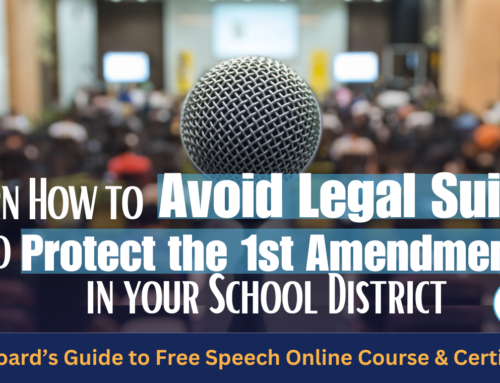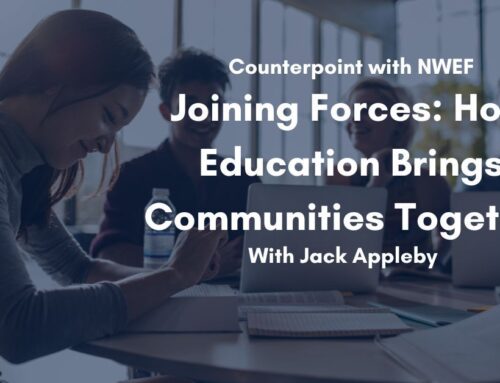
This is Part 2 of a series of interviews with Willie Deutsch. Click here to read Part 1.
—
Ah, yes. The inner workings of schools and the government.
It’s not at the top of most people’s list of fascinating conversation topics.
But if you’re a parent or another concerned member of the community, that might be a different story. You already know that public school board decisions are making headlines at unprecedented rates these days. Heated debates fly from every side. Many taxpayers are angry, frustrated, and desperate to be heard in an education system that runs on their money and claims to represent them.
Maybe you’ve heard that the best way to get involved is to get elected to your local school board, so you’ve been making plans to launch a campaign. “Do I have what it takes to be a member?” you might wonder.
Or maybe you deeply care and want to be involved—but you know you aren’t able to run for school board right now. You keep asking yourself, “How else can I get involved and make an impact?”
Good news! Today, we are joined by Willie Deutsch—a former school board member in Prince William County, Virginia—to answer all of those questions and offer you some inside tips for effective local involvement. So keep reading! (Or watch the interview segment on our YouTube channel.)
What does it take to be on the school board?
What are the legal requirements to run for school board? Do I need to have a college degree? I’m pretty busy…how much of my time will it take?
If you’ve thought about running for school board, these questions might have crossed your mind.
You don’t need a fancy degree or any experience in education to get elected to the school board. Most states have minimal legal requirements: you need to be over 18 years old and live in the jurisdiction that you are running in. (You can find out your state’s rules on its Department of Education website or at your local elections office.)
Deutsch has personal experience with the amount of time school board membership requires. “And the answer [is]: as much time as you let it,” he says. You must have an “understanding [of] the balance that you’re going to have to figure out between family and work and being on the school board,” he continues. “Because it will consume all of the extra time that you have.”
Serving on a school board means that you will be constantly interacting with small groups of people—both on the board and in the community. “You’ve got to be able to listen and be in touch with your community,” Deutsch says.
Cooperating with others and building relationships are key skills that you must have if you’re considering a run for school board. Especially because—as Deutsch reminds listeners— “you may not agree with [others] all the time… [but keeping] those human relationships while having your own backbone and core convictions [is] an important balance.”
Before You Run…
Since school board membership is time consuming and socially demanding, it is a good idea to attend several board meetings (ideally getting involved a year or more in advance) before you launch a campaign. This will help you get an idea of what to expect and keep you from being perceived as a newcomer or a single-issue candidate.
Be aware of your motives. Maybe you’re passionate about running for school board because of some big issues you heard about in the news. That’s admirable! But, as Deutsch points out, potential school board members must be willing to get involved in mundane issues as well, such as:
- Budget updates
- Analyzing school administration
- Academic reports, and more!
These are just a few examples of day-to-day school board responsibilities that will take up your time. Being on the school board is “all-encompassing [and you] have to understand what’s going on throughout the school division,” Deutsch encourages.
Launching Your Campaign
So…you’ve decided that you have what it takes to be on the school board. Congratulations! It’s time to launch your campaign.
In this week’s interview, Deutsch gives a practical list of things to consider as you set up your campaign:
- Figure out how much money you need to raise
- Find out what amount people have had to raise for other comparable, competitive school board races and be sure you can do it before committing to a campaign. You’ll need money for supplies, advertising, and more.
- Look up past elections and get a feel for how many votes were required to win in previous elections
- Research the community’s interests
- Show up at important community events
- Connect with local leaders in your jurisdiction
- Gather a good support system of friends around you during your campaign; you’ll need feedback, wisdom, and encouragement from people who know and respect you.
What to do if you can’t run right now
If you’re serious about getting involved, but aren’t able to run for school board, don’t worry! There are other meaningful ways to influence local education policy.
Start by building relationships with the board’s current members and developing good communication habits with them. Attending board meetings is an obvious—but vital—place to start.
“Look at the school board meeting agendas, show up for meetings, and talk about things that are of concern,” recommends Deutsch.
Being an effective participant means doing your research on how the school board operates. You’ll be better equipped to connect with the board members and suggest improvements if you understand school board procedures and the reasoning behind their actions.
Those who are willing to follow these simple steps are able to effectively lead their communities, Deutsch says. “And sometimes it’s out of those active parents that people arise who are worth carrying the school board. Because they actually know what’s going on and know a little bit of the dynamics of school boards.”
In Summary
To learn more about these topics, watch this week’s interview segment with Willie Deutsch. He also touches on other school issues, including:
- The biggest challenges in education today, such as spikes in mental illness among students and widespread teacher shortages
- Uncertainty among public school staff due to constant policy changes within the system
- Unprecedented amounts of controversy brought before the school board and how hard it is to focus on educational matters as a result
- Parents and their right to school choice/school choice allowances in Prince William County, Virginia
Whether you make the controversial choice to take a seat on your local school board or you decide to keep your board accountable in other ways, the Noah Webster Educational Foundation wants to equip and encourage you!
Check out “A Quick Start Guide To Running For School Board” and “5 Reasons Why Parents Should Attend School Board Meetings” for additional information and advice about bringing reform to your school district.





[…] This is Part 3 of a series of interviews with Willie Deutsch. Click here to read Part 1, and click here to read Part 2. […]
[…] » Blog » What Teachers Wish Parents Knew Previous Next What Teachers Wish Parents […]